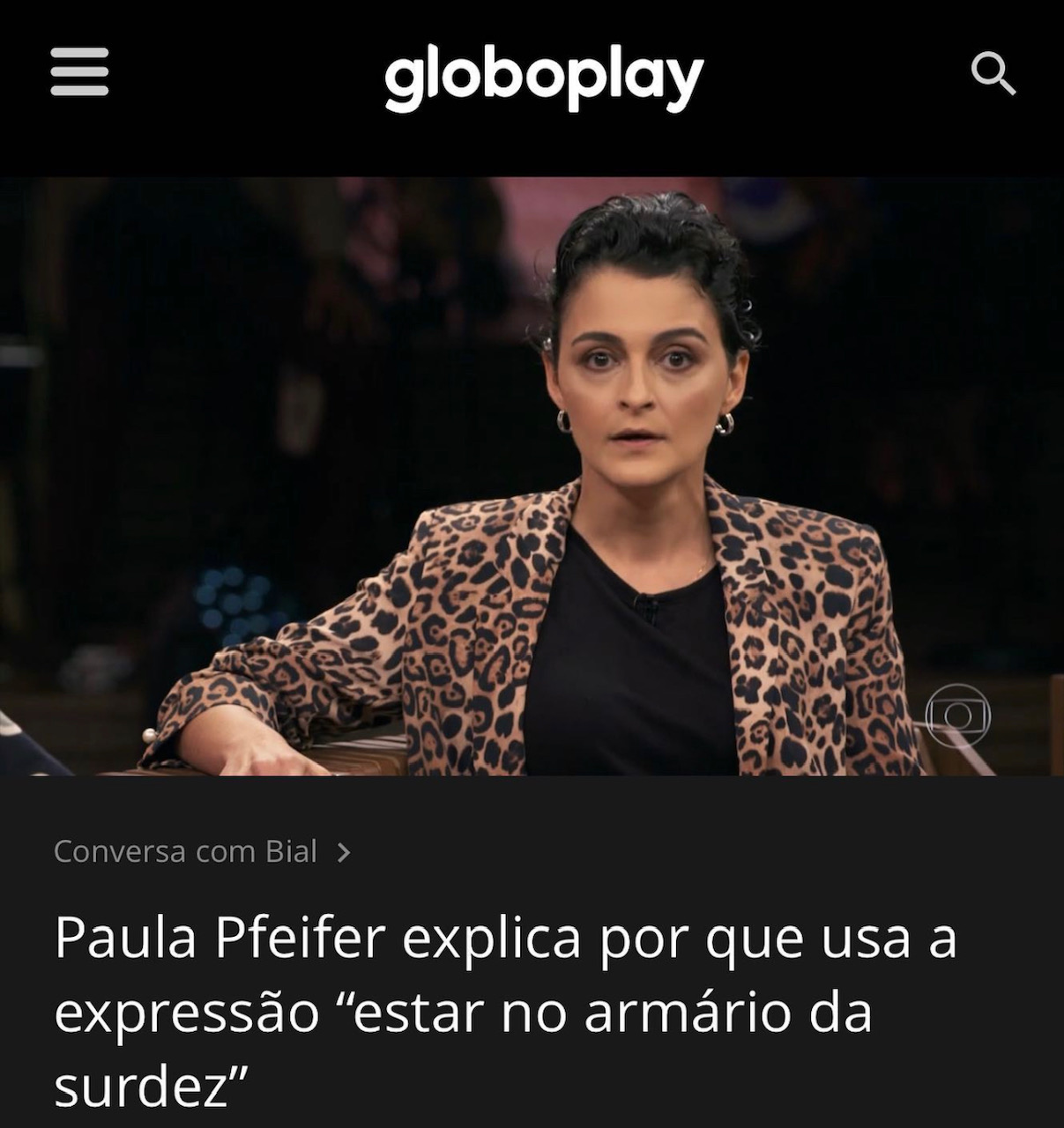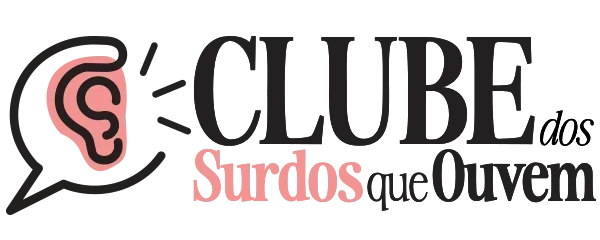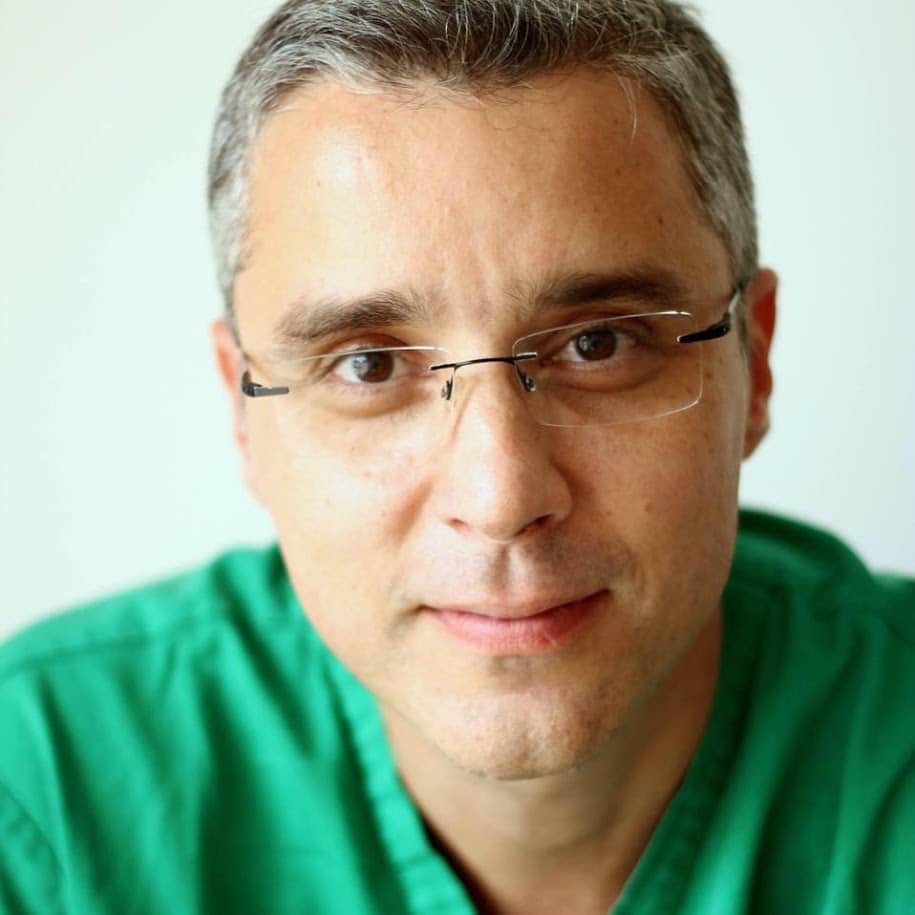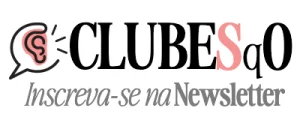
Until 2013, I could no longer listen to music, answer a phone call or understand the human voice. The prison of silence was suffocating me, and I was too afraid to leave it. But after allowing technology to revolutionize my life, I was able to become a deafness activist and help thousands of people out of this prison. It was the best thing I’ve ever done in my life.
I got a cochlear implant and I can hear all the sounds in the world again! 🙂
In 2019, I won the Facebook Community Leadership Program and had access to a fund of 1 million dollars to create and run the Deaf Who Hear project, which has brought quality information to millions of people across Brazil, Latin America and Portugal. Thousands of these people have become deaf and hearing.
I lead the largest community for people with some degree of deafness who use hearing technologies in Latin America – there are more than 22,000 of us in a closed group.
I’ve been creating content about deafness, hearing aids and cochlear implants for more than 15 years.
I’ve written five books about hearing loss, hearing aids and cochlear implants. I am married to Dr. Luciano Moreira, an otorhinolaryngologist who is an expert in hearing loss in Brazil.
I’ve given talks at Google, Facebook, Avon, Women of Tomorrow, WPP Stream, TEDx Talks, Creditas, Bradesco Seguros, the US Consulate, SESC, Oracle and countless other companies about hearing loss and technology, and thousands of people follow my work.
Being a deaf person is a reality for millions of people around the world, and spreading this knowledge is essential.
About PAULA PFEIFER: deaf author, writer and blogger
I was born hearing, and my hearing loss started in childhood. The correct diagnosis of progressive bilateral hearing loss only came when I was 16 years old, already at a severe level of hearing loss. That was when I started wearing hearing aids.
Until 2013, I couldn’t hear music, answer a phone call or understand human voice anymore. The prison of silence suffocated me, and I was very afraid of leaving. However, after allowing technology to transform my life, I could become a deafness activist and help thousands of people to leave this prison. It was the best thing I have ever done in my life.
I got a cochlear implant and was hearing all the sounds of the world again! 🙂
In 2019, I won the Facebook Community Leadership Program and had access to a fund of one million dollars to create and carry out the project I Am Deaf But I Can Hear, which brought high-quality information to millions of people in Brazil, Latin America, and Portugal. Thousands of these people have become deaf who can hear.
I lead the biggest community of people with some degree of hearing loss who are users of hearing assistive technologies in Latin America – we are more than 22,000 people in a closed group.
I have been creating content about deafness, hearing aids and cochlear implant for a decade.
I have written three books –
The Chronicles of Deafness: Hearing Aids,
New Chronicles of Deafness: Cochlear Implantation
– both were already translated to English and Spanish – and
Come Out of the Deafness Closet
. I am married to
Dr. Luciano Moreira, an ENT doctor expert in deafness and ear surgery
.
I have lectured about deafness and technology for Google, Facebook, Avon, Women of Tomorrow, WPP Stream, TEDx Talks, Creditas, Bradesco Seguros, U.S. Consulate, SESC, Oracle , and other countless companies, and thousands of people keep up with my work.
Being a deaf person who can hear is a reality for millions of people around the world, and spreading this knowledge is essential.
#surdosqueouvemDeaf Who Hear was born at the beginning of 2017, when I had to decide on the title of my TEDx Talks. Since then, I’ve lost count of how many times I’ve heard: “What do you mean deaf people who hear? Deaf people don’t hear!The expression proved to be precise and accurate. It arouses the curiosity of people who don’t know the subject and makes them want to hear the answer to this recurring question. In this way, we disseminate information, combat fake news and break down taboos and prejudices about people with any degree of hearing loss.At the end of 2018, when I won the Facebook Community Leadership Program (a global leadership program run by Facebook with more than 6500 applicants worldwide) for Latin America, I was given the mission of creating and executing a project for the benefit of our community.And that’s how Deaf Who Hear became a major project, running from January 2019 to June 2020, with the following initiatives:
- Video campaign:
Millions of people in Brazil and around the world watched the campaign’s 12 videos, which told the life stories of deaf people who hear.- Sound Connections:
events that are 100% accessible to the deaf (with real-time subtitles, a magnetic rim and a Libras interpreter) and provide quality information through talk-shows with renowned hearing health professionals, lectures and testimonials. In Porto Alegre, we had an audience of 500 people, and more than 1,135 people attended a Conexões Sonoras in 2019.- Identifying and training new leaders:
We identify and train new leaders in the Deaf Who Hear community, so that they become creative agents and replicators of our initiatives throughout the four corners of Brazil.- Online Course for Parents of Deaf People Who Hear:
we have created an online course with experts in deafness (ENT, speech therapist, psychologist, social worker, mother of deaf people who hear and Paula Pfeifer) to share high quality information on early hearing rehabilitation.#surdosqueouvem has become an intense movement, reaching countless people on social networks and receiving a lot of media attention.Representativeness, a sense of community and belonging mean that every day we can welcome new members, help people come out of the deafness closet and discover all that technology, medicine and speech therapy can do for a deaf person today. Deafness is invisible, not us!
I AM DEAF BUT I CAN HEAR movement
I Am Deaf But I Can Hear was born at the beginning of 2017, when I had to decide the title of my TEDx Talks. Since then, I have already lost count of how many times I’ve heard: “What do you mean deaf who can hear? Deaf people can’t hear!”.
The expression sounded accurate and assertive. It evokes curiosity in people who do not know the subject and makes them look forward to the answer to this recurring question. This way, we spread information, fight against fake news, break taboos, and shatter preconceptions about people with any level of hearing loss.
At the end of 2018, when I won the Facebook Community Leadership Program(a Facebook’s global program of leadership with more than 6500 candidates in the whole world) for Latin America, I was assigned the mission of creating and carrying out a project on behalf of our community.
And that is how I Am Deaf But I Can Hear turned into a huge project, carried out from January 2019 to June 2020, and had the following actions:
Video campaign:
millions of people in Brazil and in the world watched the 12 videos of the campaign which told life stories of deaf people who can hear.
Audible Connections:
events 100% accessible to deaf people (with real-time closed captions, T-Coil and sign language interpreter) which shared high-quality information through lectures, testimonials, and talk shows with renowned hearing health professionals. In Porto Alegre (Rio Grande do Sul, Brazil), we had a 500 people audience, and more than 1,135 people attended an Audible Connections in 2019.
Recognizing and training new leaders:
we recognize and train new leaders in the I Am Deaf But I Can Hear community so that they turn into creative people and replicate our actions in our whole country.
Course for Parents of Deaf Who Can Hear:
we created an online course with deafness experts (ENT doctors, audiologists, psychologists, social assistants, mothers of deaf who can hear and Paula Pfeifer) to share high-quality information about early auditory rehabilitation.
#IAmDeafButICanHear transformed into an intense movement, reaching countless people on social media and receiving a lot of attention from the press.
The representativeness, the sense of community and belonging makes it possible for us, every day, to welcome new members, to help people to come out of the deafness closet and to discover everything technology, medicine, and audiology are capable of doing, today, for a deaf person. Deafness is invisible, we are not!


